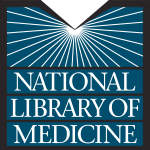- Industri: Library & information science
- Number of terms: 152252
- Number of blossaries: 0
- Company Profile:
The National Library of Medicine (NLM), on the campus of the National Institutes of Health in Bethesda, Maryland, is the world's largest medical library. The Library collects materials and provides information and research services in all areas of biomedicine and health care.
A copy number variation (CNV) is when the number of copies of a particular gene varies from one individual to the next. Following the completion of the Human Genome Project, it became apparent that the genome experiences gains and losses of genetic material. The extent to which copy number variation contributes to human disease is not yet known. It has long been recognized that some cancers are associated with elevated copy numbers of particular genes.
Industry:Medical
1) Relating to or functioning in digestion (digestive processes).
2) Having the power to cause or promote digestion (digestive enzymes).
Industry:Medical
1) Right and left arteries supplying blood to the heart muscle.
2) Either of two arteries that arise one from the left and one from the right side of the aorta immediately above the semilunar valves and supply the tissues of the heart itself.
Industry:Medical
1) High resistance to passive stretch of a muscle, resulting from fibrosis of the tissue supporting the muscles or the joints, or from disorder of the muscle fibers.
2) A permanent shortening (as of muscle, tendon, or scar tissue) producing deformity or distortion.
Industry:Medical
Il processo della scomposizione del cibo per il metabolismo e l'uso da parte del corpo.
Industry:Medical
1) Thickening and loss of elasticity of the coronary arteries, leading to progressive insufficiency of the arteries (coronary disease).
2) A condition and especially one caused by atherosclerosis that reduces the blood flow through the coronary arteries to the heart muscle and typically results in chest pain or heart damage -- called also coronary disease, coronary heart disease.
3) A disease in which there is a narrowing or blockage of the coronary arteries (blood vessels that carry blood and oxygen to the heart). Coronary heart disease is usually caused by atherosclerosis (a build up of fatty material and plaque inside the coronary arteries). The disease may cause chest pain, shortness of breath during exercise, and heart attacks. The risk of coronary heart disease is increased by having a family history of coronary heart disease before age 50, older age, smoking tobacco, high blood pressure, high cholesterol, diabetes, lack of exercise, and obesity.
Industry:Medical
The transmission of two or more linked genes on a chromosome to the same daughter cell leading to the inheritance by the offspring of these genes together.
Industry:Medical
Delays in any or all areas including cognitive, social, language, sensory, and emotional development.
Industry:Medical
1) Desmosomes are intercellular anchoring junctions that anchor intermediate filaments at membrane-associated plaques in adjoining cells. Desmosomes assemble in response to cell-cell contact and raised levels of extracellular calcium. Sensitivity to calcium levels is lost as desmosomes mature.
2) A specialized local thickening of the plasma membrane of an epithelial cell that serves to anchor contiguous cells together.
Industry:Medical
